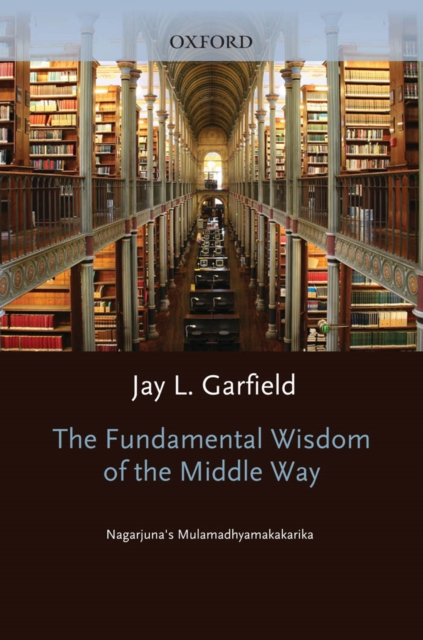
The Fundamental Wisdom of the Middle Way : Nagarjuna's Mulamadhyamakakarika EPUB
by Nagarjuna
EPUB
Description
The Buddhist saint N?g?rjuna, who lived in South India in approximately the second century CE, is undoubtedly the most important, influential, and widely studied Mah?y?na Buddhist philosopher. His many works include texts addressed to lay audiences, letters of advice to kings, and a set of penetrating metaphysical and epistemological treatises. His greatest philosophical work, the M?lamadhyamikak?rik?--read and studied by philosophers in all major Buddhist schools of Tibet, China, Japan, and Korea--is one of the most influential works in the history of Indian philosophy. Now, in The Fundamental Wisdom of the Middle Way, Jay L. Garfield provides a clear and eminently readable translation of N?g?rjuna's seminal work, offering those with little or no prior knowledge of Buddhist philosophy a view into the profound logic of the M?lamadhyamikak?rik?. Garfield presents a superb translation of the Tibetan text of M?lamadhyamikak?rik? in its entirety, and a commentary reflecting the Tibetan tradition through which N?g?rjuna's philosophical influence has largely been transmitted. Illuminating the systematic character of N?g?rjuna's reasoning, Garfield shows how N?g?rjuna develops his doctrine that all phenomena are empty of inherent existence, that is, than nothing exists substantially or independently. Despite lacking any essence, he argues, phenomena nonetheless exist conventionally, and that indeed conventional existence and ultimate emptiness are in fact the same thing. This represents the radical understanding of the Buddhist doctrine of the two truths, or two levels of reality. He offers a verse-by-verse commentary that explains N?g?rjuna's positions and arguments in the language of Western metaphysics and epistemology, and connects N?g?rjuna's concerns to those of Western philosophers such as Sextus, Hume, and Wittgenstein. An accessible translation of the foundational text for all Mah?y?na Buddhism, The Fundamental Wisdom of the Middle Way offers insight to all those interested in the nature of reality.
Information
-
Download - Immediately Available
- Format:EPUB
- Publisher:Oxford University Press
- Publication Date:09/11/1995
- Category:
- ISBN:9780199766321
Other Formats
- PDF from £12.38
- Hardback from £41.69
Information
-
Download - Immediately Available
- Format:EPUB
- Publisher:Oxford University Press
- Publication Date:09/11/1995
- Category:
- ISBN:9780199766321






